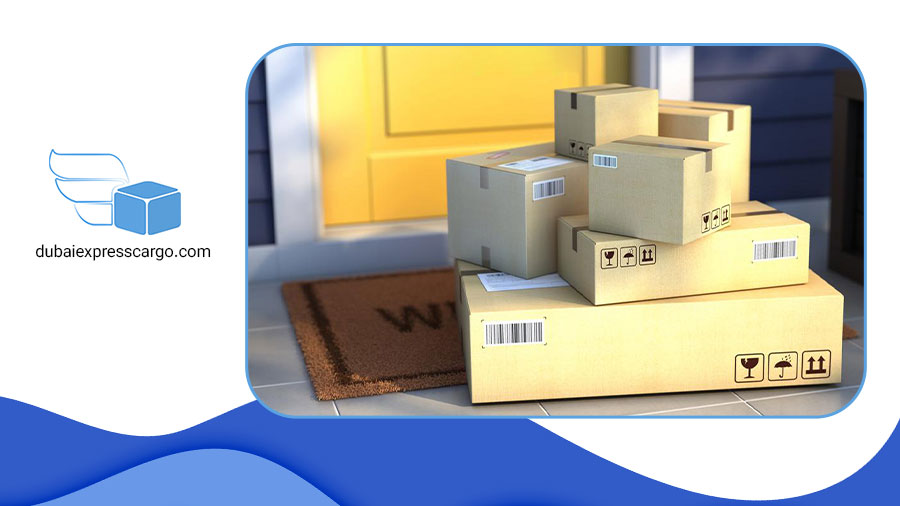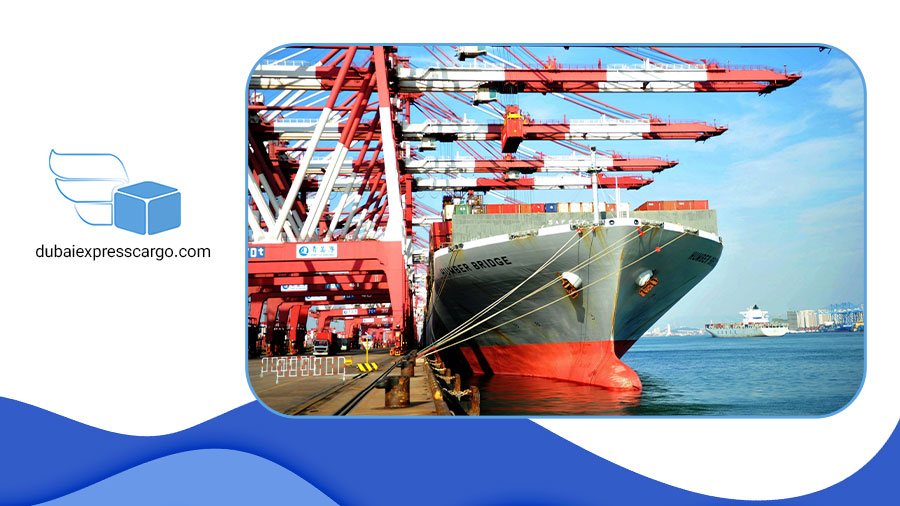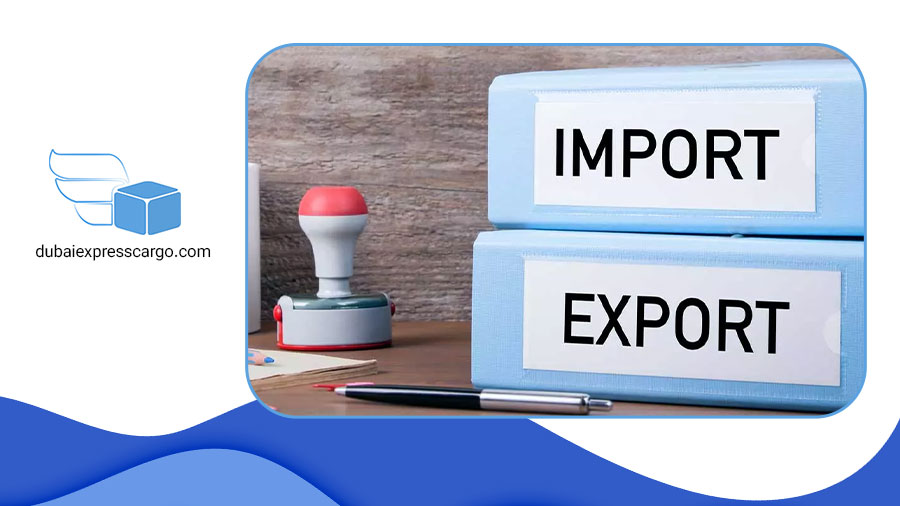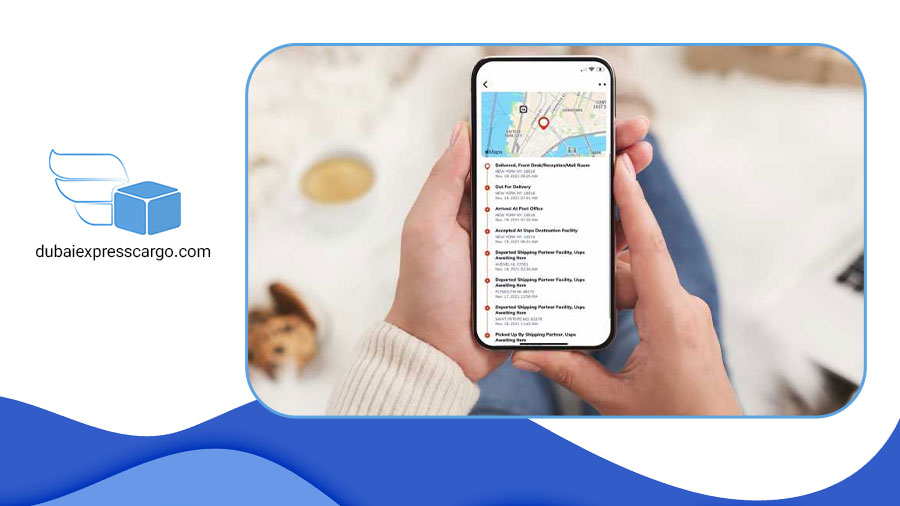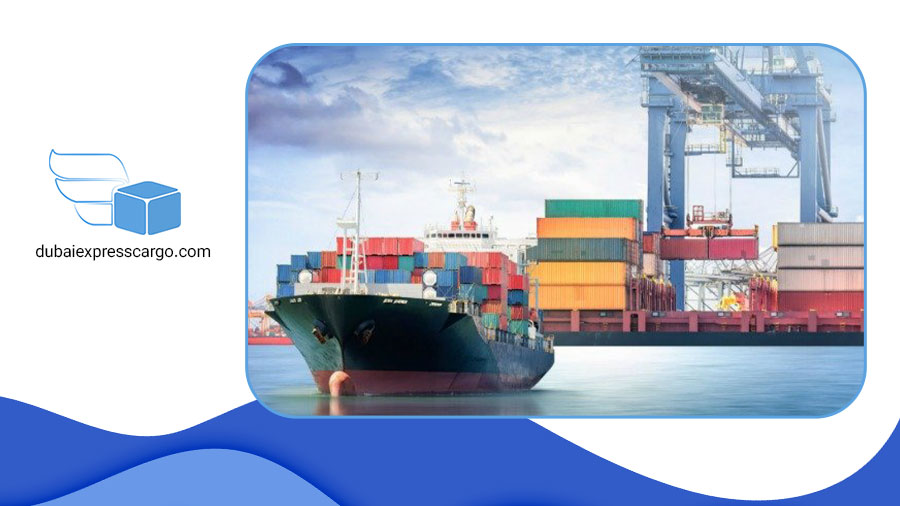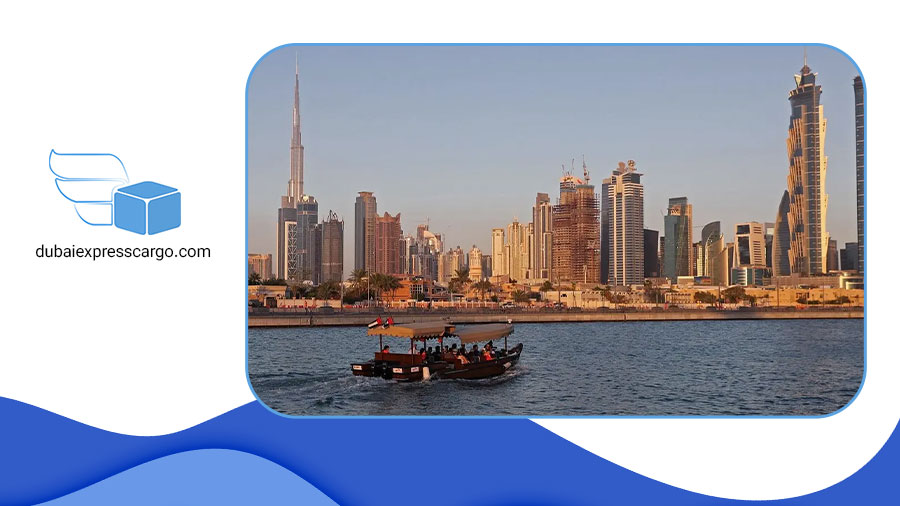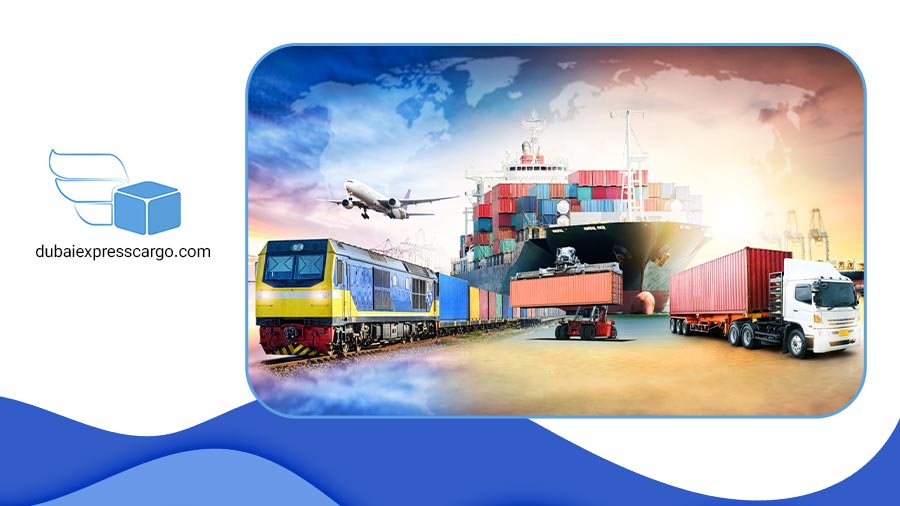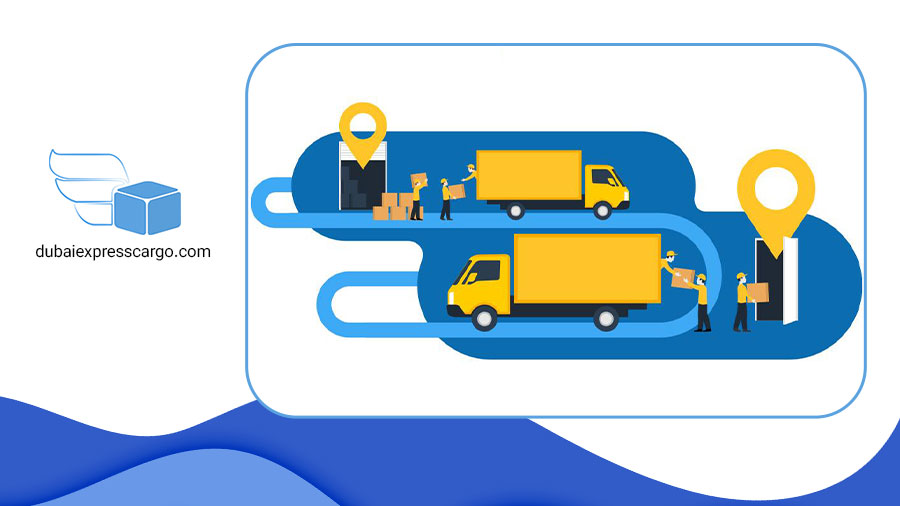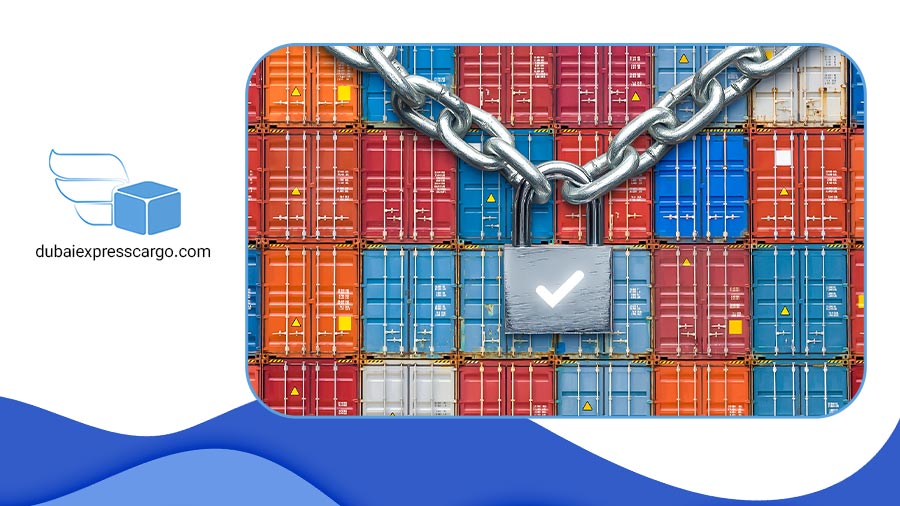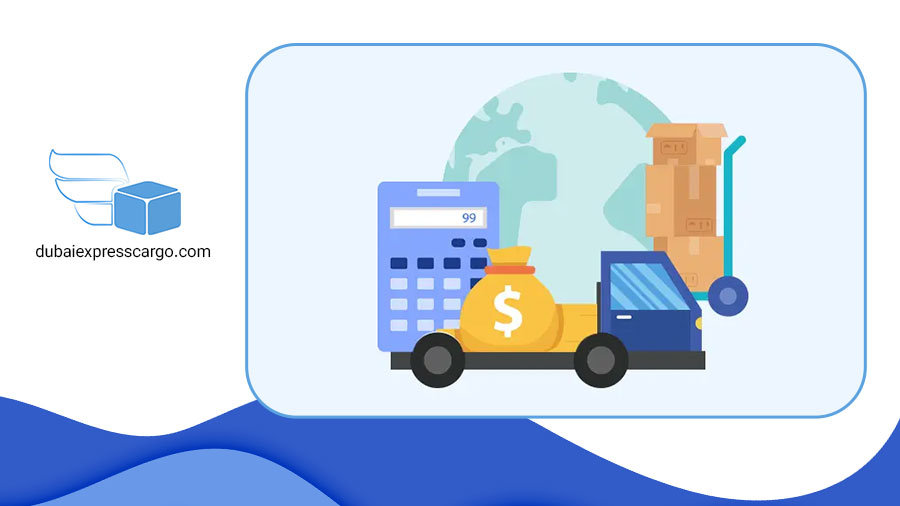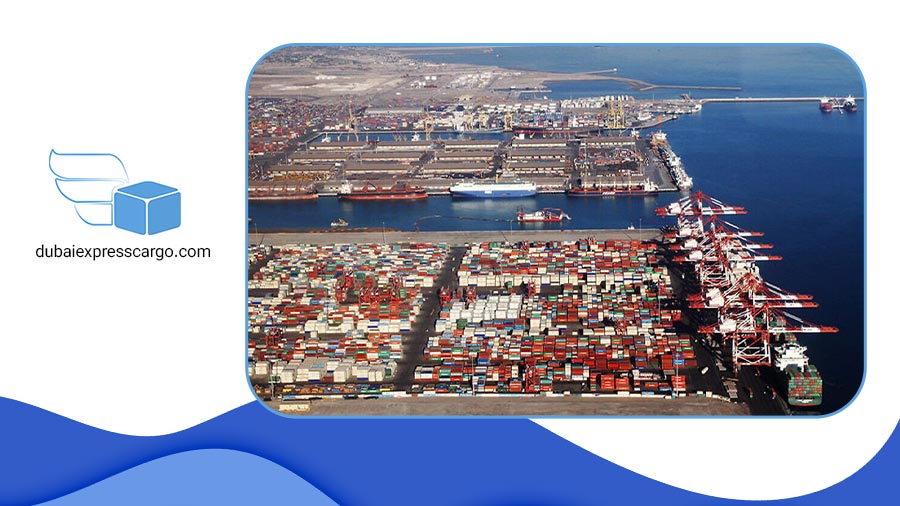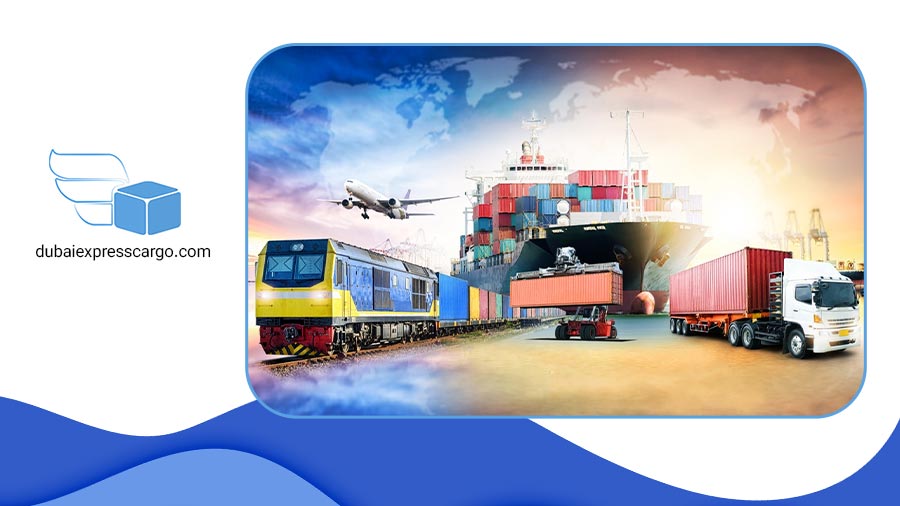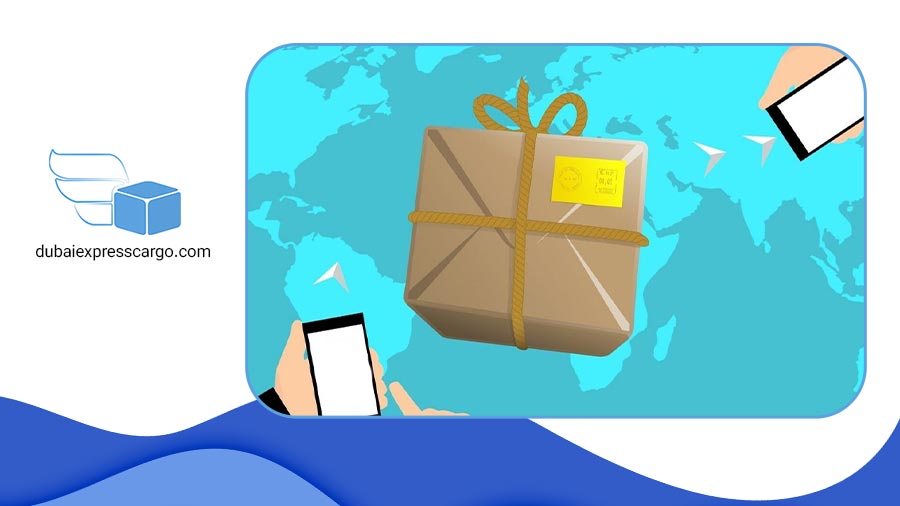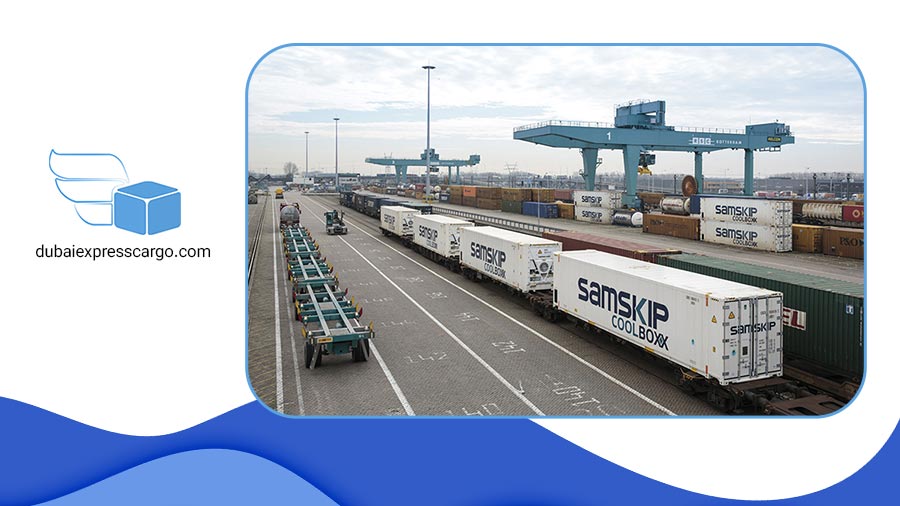Door to door shipping plays a vital role in international trade, ensuring hassle-free movement of goods from the supplier’s location to the recipient’s doorstep. This blog post explores the ins and outs of door to door shipping from China to Oman, shedding light on the booming trade relationship between these two nations.
As China and Oman strengthen their trade ties, the demand for efficient shipping services has soared. Understanding the nuances of door to door shipping is crucial for businesses and individuals engaged in cross-border trade.
From choosing the suitable shipping mode, preparing your shipment to deal with customs regulations, and optimizing costs, we’ve got you covered. Learn about the benefits of working with reliable freight forwarders and gain practical tips to ensure successful door to door deliveries.
Concept of Door-to-Door Shipping
Door to door shipping coordinates the whole shipment from China to Oman. Pickup, transportation, customs processing, and delivery streamline cross-border commodities flow. By outsourcing logistics to professional shipping companies, this seamless strategy reduces importer and exporter stress.
Advantages of Door to Door Shipping for China-Oman Trade
1. Time Efficiency:
Door-to-door shipping reduces transit times by optimizing routes and avoiding unnecessary delays. It ensures swift movement of goods between China and Oman, enhancing overall trade efficiency.
2. Convenience and Reliability:
As shipping companies handle every process stage, businesses and individuals benefit from a hassle-free experience. This reliability fosters trust and fosters stronger trade relationships.
3. Customs Expertise:
Navigating customs regulations can be complex, but door to door shipping companies are well-versed in the intricacies of import and export requirements for both China and Oman. They ensure proper documentation and smooth customs clearance.
4. Risk Mitigation:
Professional shipping companies offer insurance coverage for shipments, safeguarding against potential loss or damage during transit. This added protection gives peace of mind to traders and minimizes financial risks.
5. Cost-Effective Solutions:
Though door-to-door shipping might seem pricier at first glance, it often proves cost-effective when considering the bundled services and reduced need for additional intermediaries.
- Related Article: THE CHEAPEST WAY TO SHIP TO OMAN
6. End-to-End Tracking:
Advanced tracking systems allow real-time monitoring of shipments, enabling both importers and exporters to stay informed about their cargo’s whereabouts throughout the journey.
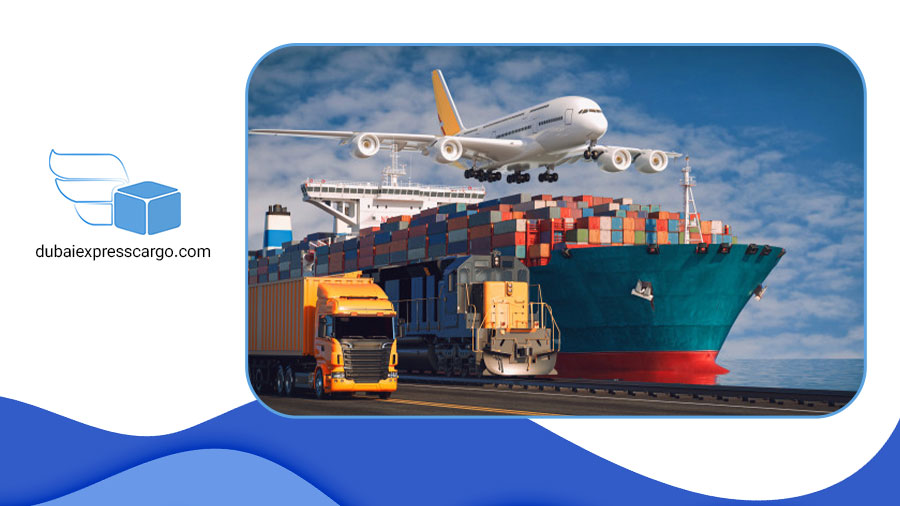
How Door to Door Shipping from China to Oman Works?
- Booking
The process begins with the importer or exporter booking the door-to-door shipping service with a reputable freight forwarder. Essential shipment details, such as cargo weight, dimensions, and destination, are provided at this stage.
- Pickup and Transportation
The shipping company arranges for the cargo’s pickup from the supplier’s location in China, transporting it to the port or airport for onward shipment to Oman. Transportation is optimized for efficiency and timely delivery.
- Customs Clearance
The shipment goes through customs clearance procedures in China and Oman during transit. The shipping company manages all necessary documentation, adhering to each country’s import regulations.
- Inland Transportation
Upon reaching Oman, the cargo is transported from the port or airport to its final destination. This last leg of the journey ensures the goods reach the recipient’s doorstep.
- Final Delivery
The shipping company delivers the goods directly to the recipient, completing the door-to-door shipping process. The recipient receives the cargo at their specified location, eliminating the need for additional logistics arrangements.
Choosing the Right Shipping Mode from China to Oman
Air Freight:
- Pros: Faster transit time, ideal for perishable goods or time-sensitive shipments.
- Cons: Generally higher cost than sea freight, limited capacity for oversized items.
- Related Articles: TYPES OF AIR CARGO
Sea Freight:
- Pros: Cost-effective for large shipments, suitable for bulky or heavy goods.
- Cons: Longer transit time, not suitable for urgent deliveries.
- Related Articles: TYPES OF SEA CARGO
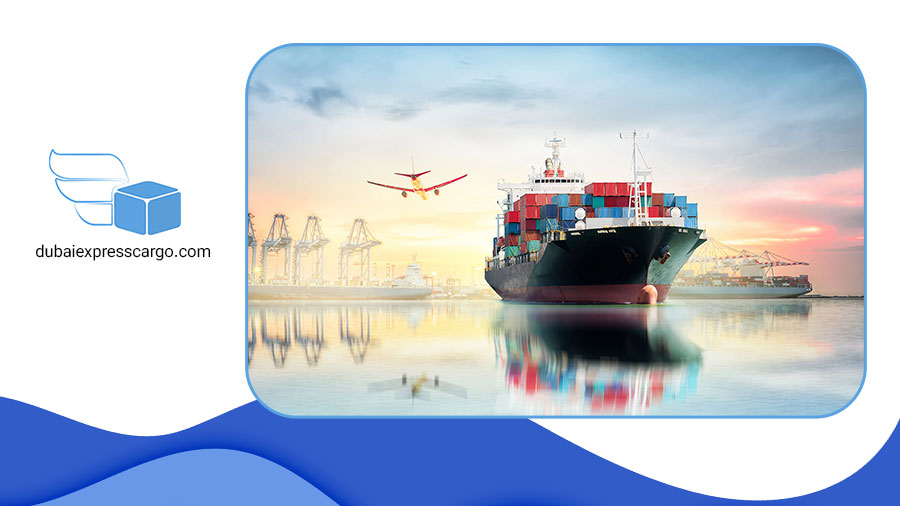
Factors Influencing the Decision (Cost, Transit Time, Type of Goods)
- Cost: Consider your budget and the overall cost-effectiveness of each shipping mode.
- Transit Time: Evaluate how urgently the goods need to reach their destination.
- Type of Goods: Determine if the cargo is perishable, fragile, oversized, or hazardous.
Best Practices for Selecting the Appropriate Shipping Mode
- Weight and Volume Analysis: Calculate the shipment’s weight and volume to determine cost implications.
- Time Sensitivity: Choose air freight for time-sensitive shipments and sea freight for cost-saving measures.
- Freight Forwarder Consultation: Seek advice from freight forwarders to make informed decisions.
- Consolidation Options: Consider consolidating smaller shipments to optimize costs and transit times.
- Insurance Coverage: Assess the need for additional insurance based on the shipping mode’s inherent risks.
- Regulatory Compliance: Ensure the selected way aligns with customs and import regulations.
Preparing your Shipment from China to Oman
Packaging Guidelines and Considerations
- Secure Packaging: Use sturdy materials to protect the goods from damage during transit.
- Cushioning: Add cushioning materials to safeguard fragile items from shocks and vibrations.
- Proper Labeling: Clearly label the packages with shipping details and handling instructions.
- Weight Distribution: Ensure even weight distribution to prevent imbalances during transportation.
- Hazardous Goods: Comply with regulations for shipping hazardous materials, if applicable.
- Weather Resistance: Consider weather conditions during transit and choose appropriate packaging.
Necessary Documentation for China-Oman Shipments
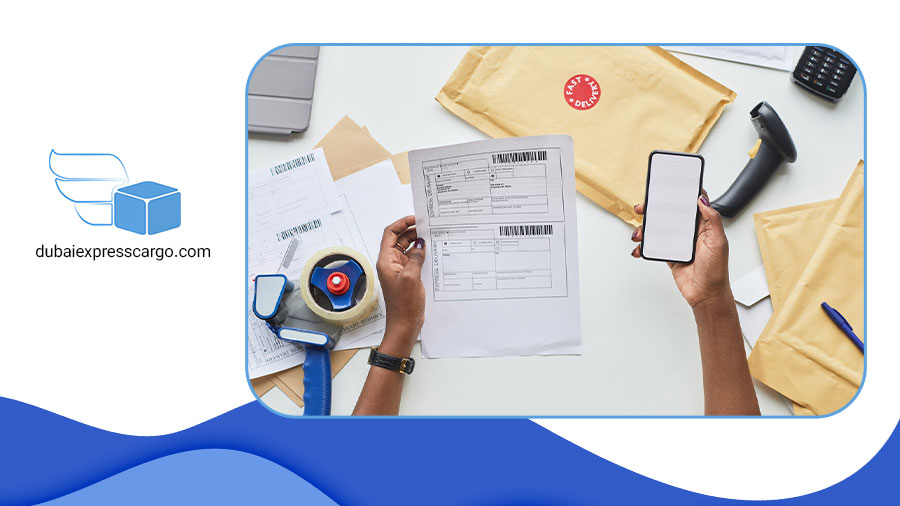
- Commercial Invoice: Include details of the shipment’s value, description, and terms of sale.
- Bill of Lading: A crucial document that acts as a receipt and contract of carriage.
- Packing List: Comprehensive inventory of the contents in each package or container.
- Certificate of Origin: Proves the country of origin for customs clearance purposes.
- Import/Export Permits: Obtain any required permits or licenses for restricted goods.
Customs Regulations and Clearance Procedures
- Prohibited Items: Familiarize with items restricted or banned for import into Oman.
- Duties and Taxes: Understand the applicable customs duties, taxes, and handling fees.
- Harmonized System (HS) Codes: Classify goods with accurate HS codes for proper assessment.
- Importer/Exporter Registration: Ensure both parties are registered with relevant authorities.
- Temporary Importation: Comply with rules for temporary use or exhibition goods.
- Restricted Goods: Know the specific regulations for goods such as food, electronics, or pharmaceuticals.
Complying with packaging guidelines and documentation requirements is crucial to prevent delays and ensure smooth customs clearance. By understanding Oman’s customs regulations, importers can confidently prepare their shipments for hassle-free entry into the country.
Working with experienced freight forwarders can further streamline the preparation process, as they can offer valuable guidance and handle all necessary paperwork on behalf of the shipper.
Working with a Freight Forwarder or Shipping Company

Benefits:
- Expertise and Experience: Freight forwarders possess in-depth knowledge of international shipping regulations and practices.
- Customs Compliance: They navigate complex customs procedures, ensuring smooth clearance and avoiding delays.
- Cost Efficiency: Freight forwarders optimize shipping routes and negotiate competitive rates for clients.
- Multi-Modal Solutions: They offer flexibility in choosing the most suitable shipping mode for different types of cargo.
- Documentation Management: Handling paperwork, permits, and licenses, streamlining the shipping process.
- Risk Mitigation: Reputable forwarders offer cargo insurance, protecting against potential losses during transit.
What to Look for in a Reliable Shipping Company?
- Licensing and Certifications:
Verify that the company is licensed and registered with relevant authorities.
- Track Record:
Check for positive reviews and testimonials from previous clients, indicating reliability.
- Global Network:
A strong network of agents and partners ensures efficient handling at various stages.
- Customer Support:
Responsive and helpful customer service ensures effective communication throughout the process.
- Transparency:
Look for a shipping company that provides clear, detailed cost breakdowns and updates.
- Specialized Services:
Consider a company with expertise in handling specific types of goods or industries.
How Freight Forwarders Simplify the Door-to-Door Shipping Process?

- Single Point of Contact: Freight forwarders act as a single point of contact for all shipping-related matters.
- Door-to-Door Coordination: They manage the entire shipping journey, from pickup to final delivery.
- Customs Expertise: Forwarders handle all customs documentation and clearances, ensuring compliance.
- Route Optimization: They choose the most efficient and cost-effective transportation routes for shipments.
- Shipment Tracking: Providing real-time tracking updates and keeping clients informed throughout the process.
- Issue Resolution: If there are any hiccups, forwarders handle problem-solving, minimizing disruptions.
Partnering with a reputable freight forwarder or shipping company ensures successful door to door shipping from China to Oman. Their expertise, global networks, and commitment to smooth operations simplify the shipping process for both experienced importers and newcomers to international trade.
By conducting thorough research and selecting the right shipping partner, businesses and individuals can optimize their logistics and focus on confidently growing their trade ventures.
Step-by-Step Guide Door to Door Shipping from China to Oman
Door to door shipping from China to Oman involves a well-coordinated process that ensures smooth and efficient transportation of goods.
Step 1:
Pickup from the Supplier in China The process commences with the freight forwarder arranging the pickup of your goods directly from the supplier’s location in China. This includes careful inspection and proper documentation to initiate the shipping process.
Step 2:
Transportation to the Port or Airport After pickup, the cargo is transported to the nearest port or airport, depending on the selected shipping mode. During transit, freight forwarders optimize routes to minimize travel time and maximize efficiency.
Step 3:
Customs Clearance in China and Oman At this crucial stage, the shipment undergoes customs clearance in both China and Oman. Freight forwarders meticulously handle all required paperwork, ensuring adherence to import/export regulations and tariff classifications.
Step 4:
Inland Transportation in Oman Upon arrival in Oman, the cargo proceeds to the next leg of its journey. Inland transportation carries the goods from the port or airport to the final destination within Oman, whether it’s a warehouse or the recipient’s doorstep.
Step 5:
Final Delivery to the Recipient’s Doorstep The last and most awaited step involves delivering your goods to the recipient’s specified location. Reputable freight forwarders offer end-to-end tracking, allowing you to monitor the shipment’s progress and anticipate delivery times accurately.
Throughout this journey, freight forwarders act as the bridge between the various stages, coordinating the logistics, handling customs procedures, and managing potential challenges that may arise. They keep you informed and updated, providing peace of mind while your cargo travels from China to Oman.
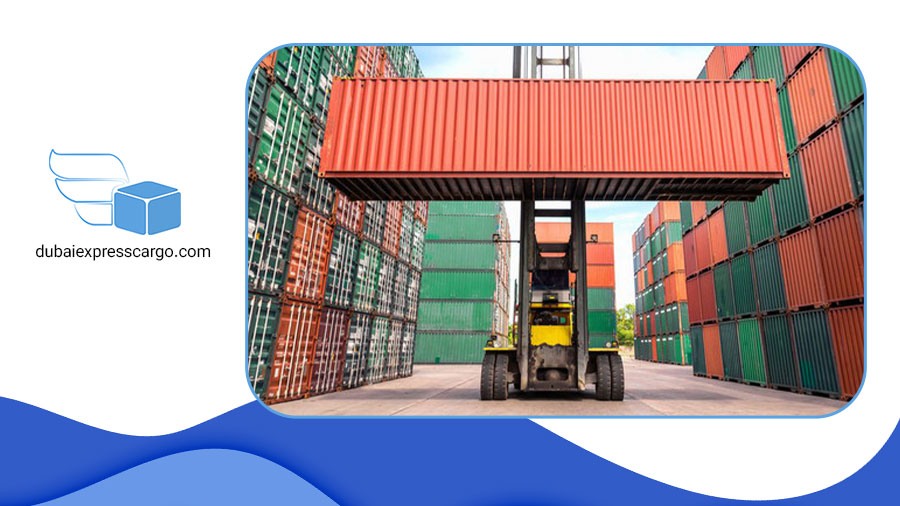
Customs and Duties
Oman’s Import Regulations and Restrictions
Before shipping goods from China to Oman, it’s crucial to be well-informed about Oman’s import regulations and restrictions.
Oman may restrict certain items, such as specific commodities, electronics, pharmaceuticals, or cultural or religious significance items. Familiarize yourself with the list of prohibited goods to prevent delays or confiscation of your shipment.
Calculating and Managing Customs Duties and Taxes
Customs duties and taxes are levied on imported goods and vary depending on the type of goods and their declared value.
Accurate calculation and timely payment of these charges are crucial to avoid delays and additional costs. Working with a freight forwarder can be advantageous as they are well-versed in the customs duties and taxes for China-Oman shipments.
To calculate customs duties and taxes, you’ll need to determine your goods’ Harmonized System (HS) code, which classifies products based on their nature and intended use.
This code will be used by customs authorities to assess applicable charges. Ensure the declared value is accurate to prevent issues during customs inspection.
Tips for Smooth Customs Clearance
Some tips to ensure your shipment clears customs without complications:
- Accurate Documentation
Provide complete and accurate shipping documents, including the commercial invoice, packing list, and certificate of origin. Errors or missing information can lead to delays.
- Clear Communication
Maintain clear communication with your freight forwarder and the recipient in Oman. Promptly respond to any queries from customs authorities to avoid unnecessary hold-ups.
- Pre-shipment Preparation
Prepare your shipment well in advance, allowing ample time for customs processing. Rushing the process may lead to mistakes and delays.
- Compliance with Regulations
Ensure your shipment complies with all relevant customs regulations and import requirements. Non-compliant shipments risk being held or returned.
- Expert Advice
Seek advice from your freight forwarder or a customs broker to navigate any complexities in Oman’s customs procedures. They can offer guidance on specific documentation or requirements.
- Hazardous Materials
If your shipment includes hazardous materials, follow all regulations for the safe and legal transportation of these goods.
- Plan for Delays
Customs clearance can occasionally face unexpected delays due to various factors. Build in buffer time for potential delays in your shipping timeline.

- Related Articles: 6 WAY FOR MAKING THE CUSTOMS CLEARANCE PROCESS EASIER
Transit Time and Tracking from China to Oman
The transit time for door to door shipping from China to Oman varies based on the chosen shipping mode. Air freight offers faster delivery, typically taking a few days to a week, making it ideal for time-sensitive shipments.
On the other hand, sea freight is a more economical option, but it generally has a longer transit time, ranging from a few weeks to a month or more, depending on the specific route and port congestion.
Tracking Your Shipment’s Journey from China to Oman
Real-time tracking is an invaluable feature that reputable freight forwarders and shipping companies provide.
You can monitor your shipment’s location and progress through advanced tracking systems as it travels from China to Oman. Regular updates on its status allow you to stay informed and plan accordingly.
Dealing with Delays and Contingency Plans
Despite careful planning, delays in shipping can occur due to various factors such as adverse weather conditions, customs inspections, or port congestion. When facing delays, communication with your freight forwarder is key. They can help assess the situation, provide alternate solutions, and inform you about the revised delivery timeline.
Contingency plans are essential for handling unforeseen events. This may involve having buffer time in your shipping schedule or choosing a more expedited shipping mode for critical shipments. Additionally, having a backup supplier or contingency stock can ensure a steady supply chain in case of unexpected delays.
Remaining flexible and proactive is crucial when dealing with transit delays. Keep the recipient informed of any changes and work closely with your freight forwarder to explore all available options to minimize the impact of delays on your business operations.
Importance of Cargo Insurance
Cargo insurance protects your shipment from potential loss or damage during transit. Despite careful handling and proper packaging, unforeseen events such as accidents, theft, natural disasters, or unexpected delays can occur, putting your goods at risk. Cargo insurance provides financial security, giving you peace of mind and safeguarding your investment.
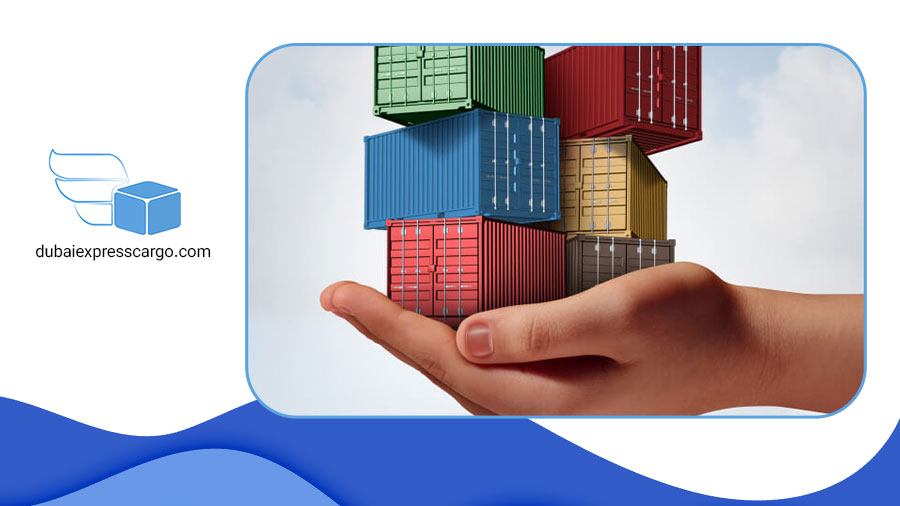
Types of Insurance Coverage Available:
1. All-Risk Coverage:
This comprehensive option covers a wide range of risks, protecting against most potential perils during transit. It offers the highest level of coverage and is recommended for valuable or fragile goods.
2. Total Loss Coverage:
This policy covers the shipment’s total loss due to specified perils. While it provides more limited coverage than all-risk, it offers a cost-effective option for certain shipments.
3. General Average Coverage:
This type of insurance applies in cases where sacrifices are made to save the vessel or cargo during emergencies. It spreads the loss cost among all parties, offering protection against these unpredictable situations.
4. Warehouse-to-Warehouse Coverage:
This policy covers the goods from when they leave the warehouse of origin until they reach the final destination, providing continuous protection throughout the journey.
Finding the Right Insurance Policy for Your Shipment
Selecting the appropriate insurance policy for your shipment requires careful consideration. Here are some steps to find the right coverage:
1. Assess Your Shipment:
Evaluate the nature, value, and vulnerability of your goods to determine the level of coverage needed.
2. Consult with Insurance Experts:
Seek advice from insurance experts or brokers specializing in cargo insurance. They can help you understand the different policy options and tailor coverage to your needs.
3. Compare Quotes:
Obtain quotes from multiple insurers and compare the coverage, premiums, and terms offered. Look for a balance between comprehensive coverage and competitive pricing.
4. Read the Fine Print:
Thoroughly review the policy documents, terms, and conditions to understand the scope of coverage, exclusions, and claim procedures.
5. Check Claims Handling Reputation:
Investigate the insurer’s reputation for handling claims efficiently and fairly. Prompt and hassle-free claim settlements are crucial during unfortunate events.
6. Align with Your Freight Forwarder:
Work closely with your freight forwarder, as they may offer cargo insurance services or recommendations based on their experience in the shipping industry.
7. Prioritize Reliability:
Choose a reputable and financially stable insurer with a proven track record in the cargo insurance sector.
Factors Affecting Door to Door Shipping Costs from China to Oman
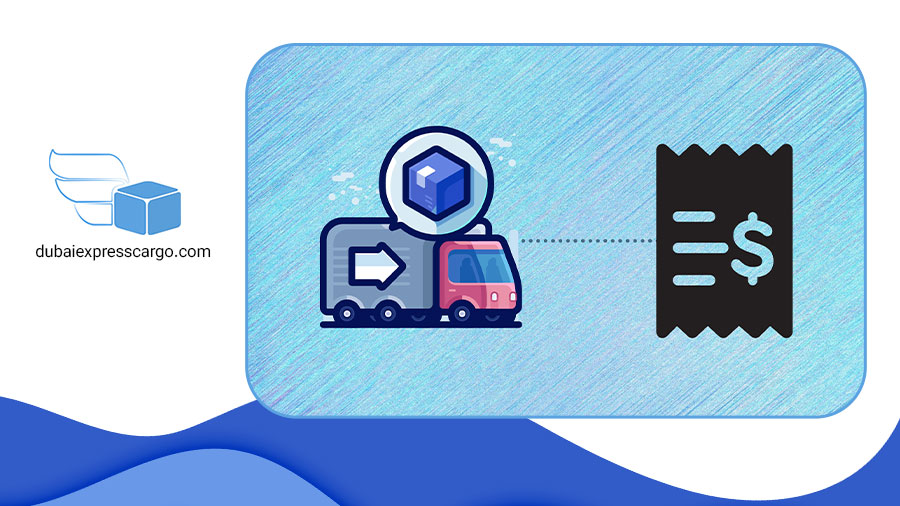
- Shipping Mode: Air freight is faster but costlier, while sea freight offers a more economical option.
- Shipment Size and Weight: Larger or heavier shipments may incur higher transportation costs.
- Distance and Route: Longer distances or complex routes can influence shipping expenses.
- Customs Duties and Taxes: Import/export charges impact overall shipping costs.
- Packaging: Proper packaging reduces the risk of damage, potentially saving on insurance costs.
- Time Sensitivity: Urgent deliveries may require premium shipping options, affecting expenses.
How to Optimize Shipping Costs Without Compromising Quality?
- Consolidate Shipments: Combine smaller shipments into larger ones to benefit from economies of scale.
- Flexible Shipping Schedule: Plan for cost-effective shipping options with more extended lead times.
- Negotiate Rates: Work with freight forwarders to negotiate competitive shipping rates and terms.
- Analyze Incoterms: Choose appropriate Incoterms to clarify cost responsibilities between buyers and sellers.
- Lean Inventory Management: Optimize inventory levels to reduce storage and holding costs.
- Partner with Reliable Freight Forwarders: Trusted partners can suggest cost-saving strategies and handle logistics efficiently.
- Insurance Coverage: Select appropriate insurance coverage to protect your shipment without overpaying.
Final Tips for Successful Door to Door Shipping from China to Oman
1. Communicating with Suppliers and Recipients:
Establish clear communication channels to coordinate pickup and delivery schedules with suppliers and recipients. Timely communication enhances efficiency and avoids misunderstandings.
2. Properly Labeling Your Shipment:
Accurate and visible labeling ensures smooth handling and prevents misrouting or delays during transit.
3. Navigating Cultural and Language Differences:
Cultural awareness fosters positive interactions and smoother customs clearance. Seek professional translation services when necessary.
4. Ensuring Secure and Timely Deliveries:
Choose reputable freight forwarders and shipping companies known for their reliability in the timely delivery of shipments.
5. Thoroughly Vet Your Shipping Partners:
Research potential shipping partners, checking reviews and testimonials to ensure their reliability and performance.
6. Real-Time Shipment Tracking:
Utilize tracking services to monitor your shipment’s progress and promptly address any potential issues.
7. Plan for Contingencies:
Have contingency plans for unexpected events such as delays, customs issues, or supplier hiccups. Be prepared to adapt quickly.
8. Stay Informed about Regulations:
Keep updated on changing import/export regulations in China and Oman to ensure compliance.
9. Optimize Packaging:
Use appropriate packaging materials to protect your goods during transit, reducing the risk of damage.
10. Consider Incoterms Wisely:
Select the most suitable Incoterms to allocate responsibilities and costs clearly between parties.
11. Seek Expert Guidance:
Consult experienced freight forwarders or logistics experts for valuable advice on navigating international shipping complexities.
Conclusion
In conclusion, Dubai Express Cargo Company offers seamless and reliable door-to-door shipment services from China to Oman, catering to the diverse needs of businesses and individuals engaged in international trade.
Dubai Express Cargo ensures smooth and timely deliveries with efficient transit times, expert handling of customs duties and taxes, real-time shipment tracking, and a comprehensive understanding of Oman’s import regulations.
Let us be your reliable partner in expanding your business horizons between these two thriving nations. Get in touch today!

